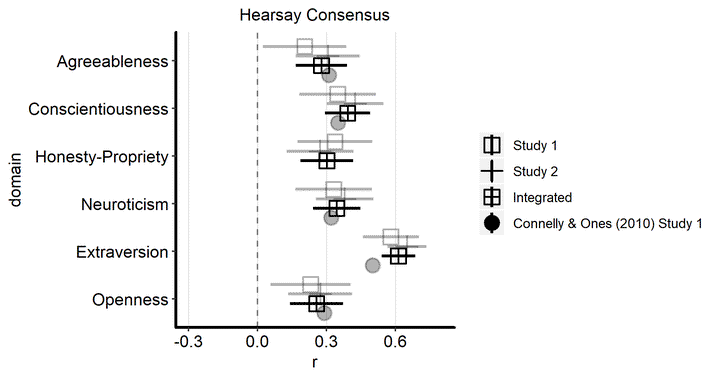
Abstract
Gossip and hearsay enable reputations to extend beyond people who have met, but little is known about the resulting reputations. Across two studies (Ntotal =629) we used a novel laboratory paradigm to study hearsay reputations. Two participants got to know one another (P1/target). Then each of them (P1) told a naive participant (P2) about the other (target). Participants rated themselves and the target on the Big 6 personality domains. Across studies, hearsay reputations showed evidence of consensus (r’s=.25 to .62), but little evidence of accuracy (r’s=.05 to .31). In Study 2, we manipulated the context of hearsay conversations by instructing them to either talk about the target’s friendship potential, leadership potential, or the target in general. Context manipulations didn’t affect accuracy or consensus of hearsay reputations, but perceptions of friendship and leadership were predicted from perceptions of personality. Implications for social functions and consequences of hearsay reputations are discussed.